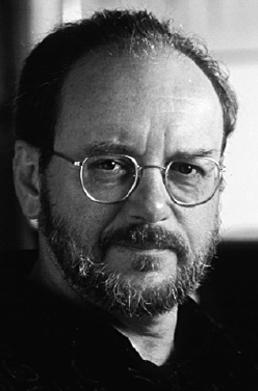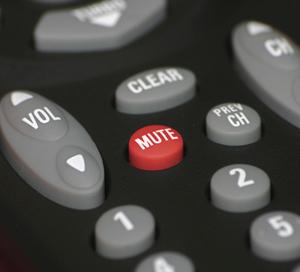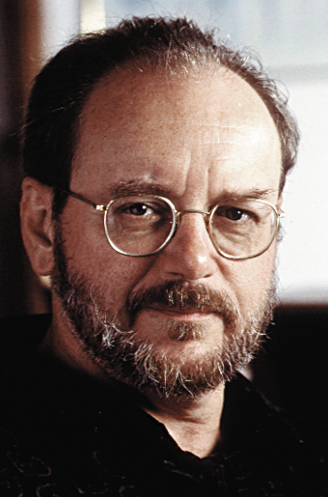Loudness vs. ‘Loudness’: What Happens When You Hijack Words

Dave Moulton
You may recall that over the past several months we’ve been worrying about how to obey the CALM Act. That, in turn, has led us to a consideration of audio metering that complied with the EBU’s ITU-R B.S. 1770-1, now also a requirement of the CALM Act.
As usual, I managed to add some confusion to the discussion by worrying about how the “loudness” we are concerning ourselves with here isn’t the same as the loudness we find defined in acoustics textbooks and my beloved Audio Dictionary (by Glenn White).
However, we all agreed, I think, that getting the CALM Act under control was our primary objective. It still is, and nothing has changed. Don’t forget it!
What I said back in May was and is true (and Glenn White agrees): “Loudness is a subjective sensation, not a physical quantity. Objective Loudness is an oxymoron in my world—there’s actually no such thing.”
Unfortunately, the EBU has appropriated the term “loudness” to refer to objective amplitude levels. (See their technical briefs 3341 and 3342, as well as R 128).
I didn’t like it back in May, but I wanted to be a good sport—getting our levels under control is really what is important here, right? Right!
Get the TV Tech Newsletter
The professional video industry's #1 source for news, trends and product and tech information. Sign up below.
VERY INTERESTING
Now I’ve just run across an extensive and very interesting article by Emannuel Deruty, writing for an audio magazine that might be regarded as a distant competitor of ours. Deruty writes about “The Loudness Wars,” which are vaguely related to our loudness concerns. (Those wars are based on recorded music and the question of “whose recording sounds loudest,” while we are worried about our various beloved TV channels and why their levels are all over the place).

Deruty does a nice job, reviewing some 4,500 recordings made over the past 40 years and measuring, in some detail, the changes in RMS amplitude, Leq, compression, dynamic range and crest factor. He goes on to consider a variety of aesthetic questions as well, such as how much is the loudness change a function of musical style vs. how much is due to mastering engineers gone wild and crazy? Thoughtful. Much more in depth than most such articles.
The problem (and the reason I am writing this) is that Deruty has just drunk the same Kool-Aid as the EBU, along with us. We’re all being urged (even ordered, as a function of the CALM Act) to buy into the premise that “loudness” is loudness.
So, Deruty headlines a paragraph with the rhetorical question: “Is Music Really Louder Now?” to which he promptly answers “Yes it is, and there is no doubt about that.”
Unfortunately, that’s not true.
The real answer to that question is “We don’t know. We haven’t done the measurements.”
For instance, we (and Deruty) haven’t considered a single acoustical music event in this regard, much less an array of such events over 40 years looking for trends. If you were to ask that question of a major conductor or maybe an acoustician, that’s probably how they would respond.
And if you were to cite Deruty’s study of 4,500 recordings, they might very well and very reasonably ask in response, “What has that got to do with music? With loudness? Those are only recordings.” And, in fact, they would be right.
We have just played the jargon card, and it may very well bite us back.
A BRIEF EDITORIAL
This isn’t Deruty’s fault. Like us, he simplifies, drawing on the EBU’s pronouncements that tend to legitimize “loudness,” which makes his and our lives simpler, if not nearly as scientifically rigorous.
As long as we stay in our professional bubble, this simplification really doesn’t matter very much at all—we all know, sort of, what we’re talking about here. However, when we go out into the real world and talk to real people, including real musicians, real couch potatoes and real acousticians, they are not going to have any idea what we’re talking about when we describe our beloved “loudness” (oops, I mean, LKFS, LUFS and LRA, you know).
We’ve appropriated their words (“loudness” and “music,” in this case) to mean something entirely different (“amplitude level” and “digital audio signal”). They have no reason to know this—loudness and music remain very, very real and utterly obvious for them. As a result, they have no reason to think we’re anything other than raving idiots that don’t even know what “loudness” and “music” really are.
When we adopt everyday words to use as jargon, as the EBU has done in this case, we add to the net total of confusion and misunderstanding in the world. The pronouncements in EBU 3341, 3342, R 128, and B.S. 1770-1 and elsewhere are really pretty emphatic in their use of the term “loudness.” There is a good political reason for this, too. Constituents of various elected representatives around the world have been complaining to said representatives about excessive and highly variable loudness in their lives. This is almost impossible to correct, not to mention, like, awesomely expensive.
So, instead we propose to fix something comparatively easy and inexpensive, in another related realm, and call it “loudness.” Who’s to know? No! Who’s on first!
And now, when the complaints come in, our representatives can respond that we’re hard at work on it or even better, that we’ve just fixed it!
WHAT DOES IT ALL MEAN?
Because we audio guys/gals are the ones on the ground here, we’re also the ones who have to watch out for our toes. You don’t really think that Rep. Anna G. Eshoo, who first introduced the CALM Act, is actually going to say, “Oops, my bad. Sorry about the loudness confusion.”
My suggestion to all of us, for our own professional safety, is to always qualify our terms to protect ourselves. It’s not hard,
For instance, I often add the prefix “para” to dodgy terms, as in “paracop” for a street crossing guard; “paraspouse” for a live-in friend; “parabrain” for a pundit. Here we can refer to “paraloudness” for the LKFS meter reading and “paramusic” for that miserably squashed audio signal.
When somebody asks us about it, we collect many bonus points for being able to thoughtfully say, “Well, it really isn’t loudness, of course, but the law says we need to pretend that it is, heh, heh.” We’ve covered ourselves pretty gracefully that way.
Put more simply, when we can’t tell whether we’re talking about music and loudness, or about “music and loudness,” we most definitely don’t know what we’re talking about.
Thanks for listening.
Dave Moulton is really interested in both music and music, as well as loudness and, well, loudness. But that’s not all! And, you can still complain to him about almost anything at his website,www.moultonlabs.com.

